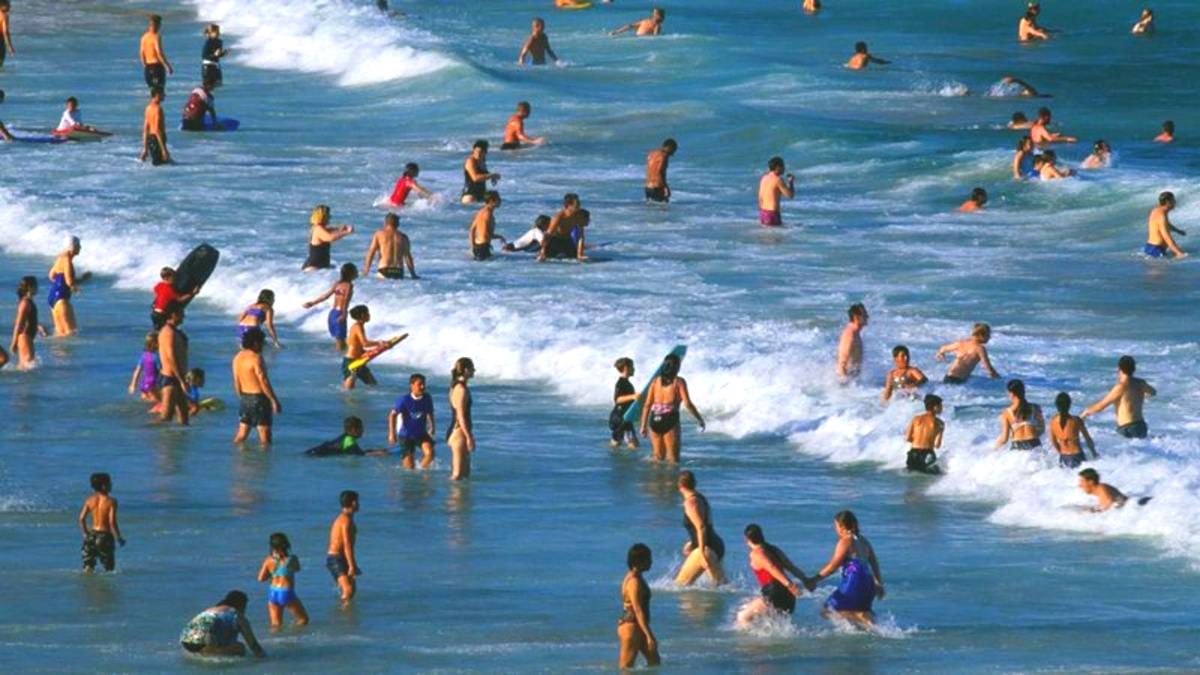What happens to your skin microbiome after a day at the beach?
Ocean bacteria and viruses take up residence, but for a limited amount of time.
As an individual initiates their first stride into the piercing cold ocean, our lungs are not the only part of our body greeted by the shock of the drastic change in environment. A brutal battle, invisible to the naked eye, has detrimentally affected those complex organisms who call our skin microbiome “home.”
In a 2019 study, scientists examined the survival of organisms introduced by the ocean onto the human skin. What researchers found may surprise those who enjoy swimming in the sea.
After spending an afternoon on the shore and partaking in water-related activities, organisms previously living on the skin are washed away and replaced with new ones. (2) As a result, this new environment causes changes to the composition and diversity of the microbiome. Potential pathogens along with hazardous organisms are introduced onto the body which could result in vulnerability to infections. (5)Subjects of these studies were selected according to the strict criteria below:
1. Subjects could not be undergoing any antibiotic treatments.
2. Application of sunblock was prohibited.
3. Individuals must classify themselves as a non-frequent ocean swimmer.
4. Subjects were not able to shower the morning of the experiment along with a full twenty-four hours after the zero hour sample was taken.
Individuals were swabbed four times throughout a 24-hour period to assess how long the newly introduced microbes could survive. (5) After the sixth hour, the microbiomes of the individuals had lost most of the invasive organisms from the ocean and regenerated the original organisms seen before swimming. By the twenty-four hour mark, the skin microbiome returned to nearly normal. (3)
Marisa Chattman Nielsen, MS, a Ph. D. graduate from the University of California, Irvine, noted, “Ocean water is a unique exposure, because not only does it wash off normal skin bacteria, it also deposits foreign bacteria onto the skin. This is very different than a shower or even a pool, because those water sources usually have a low concentration of bacteria.” (2)
Organisms such as Salmonella spp., Campylobacter spp., Vibrio spp., intestinal parasites, viruses and over fifty more species of bacteria found in storm-water and untreated raw sewage runoff can severely impact an individual’s health. This is especially of concern with a growing homeless population that does not properly dispose of solid waste.(2)

Stephen Morse, PhD, a professor of epidemiology at Columbia University says, “Don’t swim where you see ‘red tides’ or fish die-offs. The authorities will almost always close these places to recreational use anyway. Immunocompromised people and weak swimmers should be especially careful. If you think you caught a disease or injured yourself while swimming, see a doctor.” (2)
One of the most concerning issues is the rapid change occurring as we speak. Rising temperatures due to climate change could lead to a substantial increase in infections from swimming as a result of more suitable conditions for specific hazardous organisms. (4,6)
To eliminate posing a threat to your health, scientists suggest practicing good hygiene after enjoying a day at the beach. Luckily, with a quick shower, foreign organisms and potential pathogens can be washed from the skin. (1,5,6) Chattman Nielsen reminds us, “This research isn’t meant to scare anyone. We already know that people can get infections from their environment, and the ocean is no different. Much of the bacteria found in the ocean does not cause human disease. Enjoy your time at the beach, and don’t forget to take a quick shower when you’re done.” (2)
By Emily Edds
Microbiology Intern
HARDY DIAGNOSTICS







